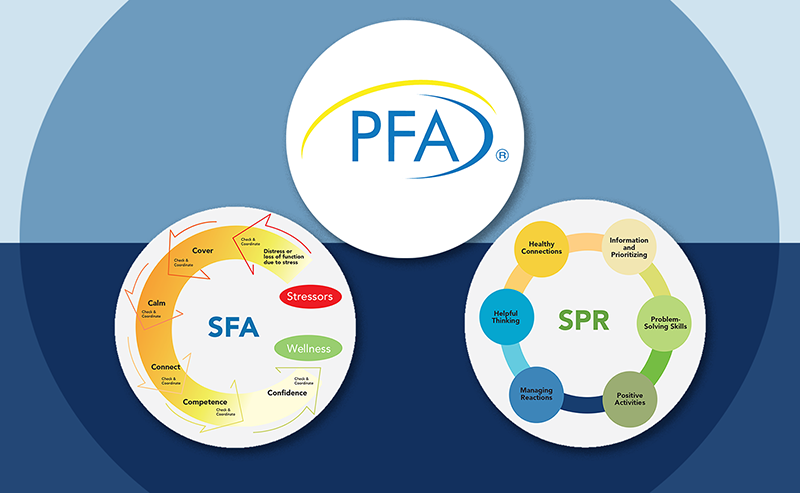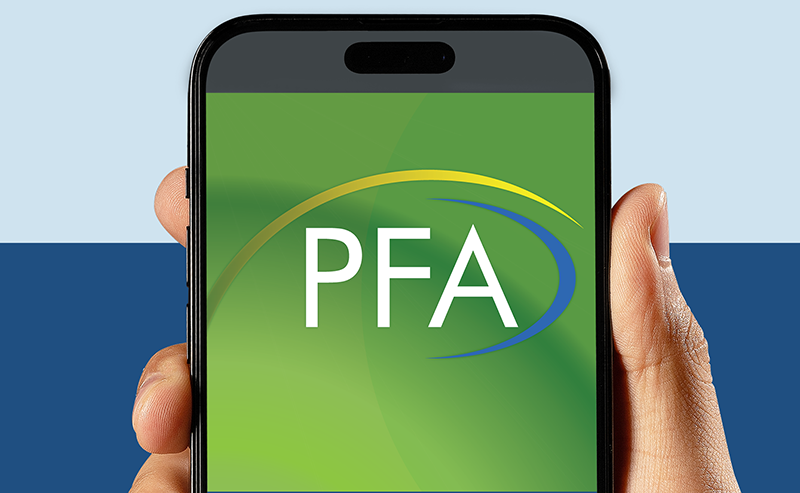PTSD: National Center for PTSD
Disaster Event Resources: For Providers and Responders
Disaster Event Resources: For Providers and Responders
Working with those affected by disasters, mass violence and public health crises can be challenging. Providers and responders may benefit from strategies that support their work in a chaotic post-disaster setting or during public health emergencies. The tools and information below include evidence-based models for disaster response and include guidance on how to foster peer support and self-care. There are also evidence-informed ways to support people in treatment for PTSD during unsettling events.
Key Information
- The Impact of Disaster Events on Mental Health
- Phases of Traumatic Stress Reactions After Disaster Events
- Resilience and Risk Factors After Disaster Events
Response and Treatment
- For Mental Health Providers: Working with People Affected by Disaster Events
- Early Interventions Following Disaster Events
- Intermediate Treatment Interventions Following Disaster Events
- Long-Term Treatment Interventions Following Disaster Events
- For Mental Health Providers: In Vivo Exposures for Prolonged Exposure Therapy During or in the Aftermath of Disaster Events
- Managing Grief After Disaster Events
- Media Coverage of Disaster Events: Research on Effects
Helping Specific Populations
Veterans
Age-Specific Groups
First Responders
Self-Care
- For Health Care Workers: Managing Stress from Disaster Events
- Working With Those Affected by Disaster Events: Traumatic Stress Basics
- Moral Injury in Health Care Workers
Manuals and Tools
- Psychological First Aid
- Skills for Psychological Recovery
- Stress First Aid
- Disaster Support Models (SFA-PFA-SPR) Infographic (PDF)
Additional Resources
- PTSD Consultation Program. If you are a provider, free consultation is available about treating stress reactions that may arise among any of your patients affected by disaster events. The expert clinicians in the PTSD Consultation Program are providing this service in addition to their usual consultation about anything related to treating Veterans with PTSD.
- SAMHSA Disaster Technical Assistance Center (DTAC). This Center works to help U.S. states and localities deliver effective behavioral health response to disasters for those affected, including responders. Consultation, training, resources, and information are available.
- Center for the Study of Traumatic Stress. This Center, at the Uniformed Services University, offers fact sheets for Disasters
 (general information) as well as for specific Disaster Events
(general information) as well as for specific Disaster Events (listed chronologically).
(listed chronologically). - National Child Traumatic Stress Network (NCTSN): Disaster Information
 . This organization focuses on children who have experienced trauma, their families, and communities. Information and resources for disaster events are available.
. This organization focuses on children who have experienced trauma, their families, and communities. Information and resources for disaster events are available.
You May Also Be Interested In


























